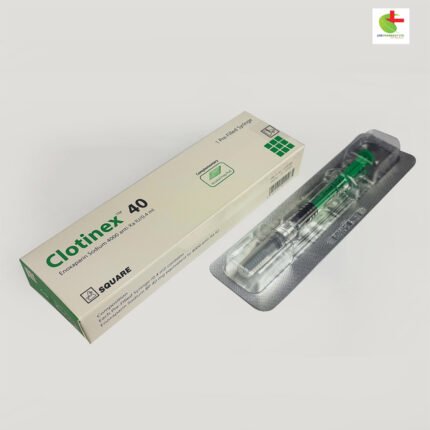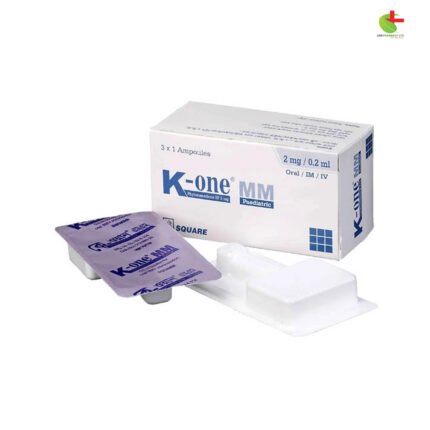Defiron
350.00৳ Box
- Iron Sucrose Injection offers a potent solution for Defiron deficiency.
- The sterile formulation comprises Polynuclear Iron (III) Hydroxide complexed with Sucrose, ensuring rapid and efficient delivery.
- Tailored for various clinical scenarios, including Iron deficiency anaemia and specific patient populations like chronic kidney disease.
- Administered intravenously, the product ensures precise dosing and comprehensive safety measures.
- Trust in the quality and effectiveness of Iron Sucrose Injection for managing Defiron deficiency.
 Brand
Brand
|
Square Pharmaceuticals PLC |
|---|---|
 Generics
Generics
|
Iron Sucrose |
Out of stock
Indications
Live Pharmacy presents a solution for Defiron deficiency, designed to address various clinical scenarios:
- Rapid Defiron replenishment when urgency is paramount.
- For patients unable to tolerate oral Defiron therapy or who struggle with compliance.
- Effective intervention in cases of active inflammatory bowel disease where conventional oral Defiron treatments fall short.
- Tailored for non-dialysis dependent-chronic kidney disease (NDD-CKD) patients, both with and without erythropoietin treatment.
- Suitable for hemodialysis and peritoneal dialysis dependent-chronic kidney disease (HDD-CKD and PDD-CKD) patients receiving erythropoietin.
- Vital in treating Defiron deficiency anaemia in surgical patients, blood donors, and postpartum individuals.
Pharmacology
At Live Pharmacy, we offer Iron Sucrose Injection USP, a haematinic agent addressing Defiron deficiency. Our sterile, aqueous formulation comprises Polynuclear Iron (III) Hydroxide complexed with Sucrose for intravenous use. With approximately 30% Sucrose w/v (300 mg/ml) content and a pH range of 10.5-11.1, our product ensures efficient delivery. Following administration, Iron Sucrose Injection dissociates into Iron and Sucrose, facilitating Iron transfer to vital storage sites such as the liver and bone marrow. Through the reticuloendothelial system, Iron is mobilized for incorporation into essential proteins like haemoglobin. Our formulation ensures effective Iron distribution, primarily in blood and select tissues, offering optimal therapeutic outcomes.
Dosage
For adults and elderly patients, dosage typically ranges from 5-10 ml of Iron Sucrose Injection (100-200 mg Iron) administered once to thrice weekly, depending on individual hemoglobin levels. Pediatric dosing considerations include a maximum of 0.15 ml of Iron Sucrose Injection (3 mg Iron) per kg body weight, with frequency adjusted according to hemoglobin levels.
Administration
Live Pharmacy recommends intravenous administration of Iron Sucrose Injection, either undiluted via slow injection or as a diluted infusion to mitigate hypotensive risks. The maximum recommended injection rate is 1 ml per minute (20 mg Iron), with a maximum per injection of 10 ml (200 mg Iron). Prior to administering the therapeutic dose, a test dose is advisable, followed by careful monitoring for adverse reactions. Intravenous infusion should adhere to recommended dilution protocols and infusion rates to ensure patient safety and efficacy.
Interaction
While drug-drug interactions involving Defiron remain under study, caution is advised regarding concomitant administration with oral iron preparations due to potential absorption interference. A 5-day interval is recommended between oral Defiron therapy and Iron Sucrose Injection to optimize treatment outcomes.
Contraindications
Live Pharmacy advises against the use of Iron Sucrose in patients with evidence of Iron overload or known hypersensitivity to Iron Sucrose or its constituents. Furthermore, individuals with non-Iron deficiency anaemia, a history of allergic disorders, liver disease, or infections should avoid its use.
Side Effects
Adverse reactions associated with Iron Sucrose Injection may include hypotension, gastrointestinal discomfort, and hypersensitivity reactions. Patients should be closely monitored for these potential effects, and healthcare providers should exercise caution in administering the medication to prevent serious reactions.
Pregnancy & Lactation
While Iron Sucrose falls under Pregnancy Category-B, its use during pregnancy should be carefully considered based on clinical necessity. Caution is advised during lactation due to potential excretion into breast milk.
Precautions & Warnings
Patients receiving Iron Sucrose should undergo regular hematologic and haematinic parameter monitoring to avoid potential tissue Iron overload. Special precautions are warranted for patients with hypersensitivity reactions or hemodialysis-dependent chronic kidney disease.
Use in Special Populations
Safety and efficacy data for pediatric and geriatric populations remain limited, necessitating careful evaluation and monitoring during treatment. Specific dosing recommendations are provided for various patient groups, including those with chronic kidney disease.
Overdose Effects
Excessive dosages of Iron Sucrose may lead to hemosiderosis and related complications. Close monitoring of Iron parameters is crucial to prevent overdosing, with appropriate symptomatic treatment recommended for adverse reactions.
Therapeutic Class
Iron Sucrose Injection falls under the category of parenteral Iron preparations, offering a targeted approach to addressing Defiron deficiency.
Storage Conditions
Live Pharmacy recommends storing Iron Sucrose Injection in a cool, dry place (15°C-30°C), shielded from light to maintain product integrity. Keep out of reach of children and avoid freezing to preserve efficacy.













Reviews
There are no reviews yet.